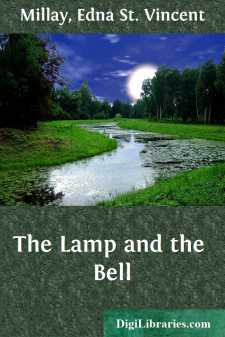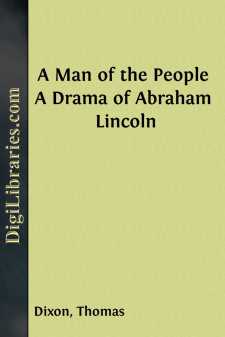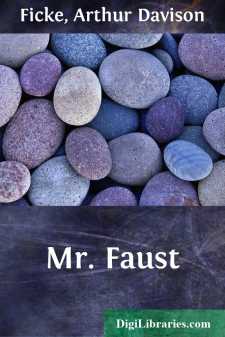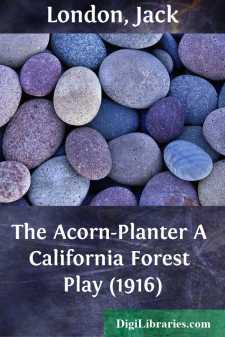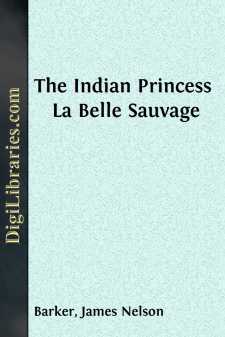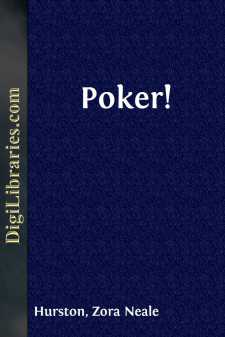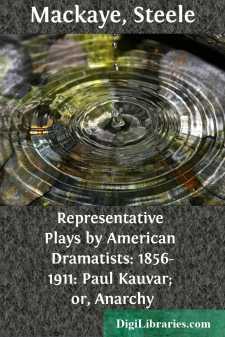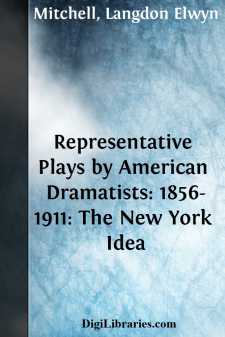Drama
American Books
Sort by:
by:
Upton Sinclair
ACT I [JULIA PATTERSON'S apartments in a model tenement on the lower East Side. The scene shows the living-room, furnished very plainly, but in the newest taste; "arts and crafts" furniture, portraits of Morris and Ruskin on the walls; a centre table, a couple of easy-chairs, a divan and many book-shelves. The entrance from the outer hall is at centre; entrance to the other rooms right and...
more...
ACT I Scene 1 [Scene: A garden of the palace at Fiori; four years later.] [Discovered seated Laura, Francesca and Fidelio, Laura embroidering,Fidelio strumming his flute, Francesca lost in thought.] LAURA. You,—Fool! If there be two chords to your lute,Give us the other for a time! FRANCESCA. And yet, Laura,I somewhat fancied that soft sound he made.'Twas all on the same tone,—but 'twas a...
more...
by:
Thomas Dixon
HISTORICAL NOTE While the popular conception of Lincoln as the Liberator of the Slave is true historically, there is a deeper view of his life and character. He was the savior, if not the real creator, of the American Union of free Democratic States. His proclamation of emancipation was purely an incident of war. The first policy of his administration was to save the Union. To this fact we owe a united...
more...
INTRODUCTION Through all the work of Arthur Davison Ficke runs a note of bigness that compels attention even when one feels that he is still groping both for form and thought. In "Mr. Faust" this note has assumed commanding proportions, while at the same time the uncertainty manifest in some of the earlier work has almost wholly disappeared. Intellectually as well as artistically, this play...
more...
by:
Jack London
ARGUMENT In the morning of the world, while his tribemakes its camp for the night in a grove, RedCloud, the first man of men, and the first manof the Nishinam, save in war, sings of the dutyof life, which duty is to make life more abundant.The Shaman, or medicine man, sings offoreboding and prophecy. The War Chief, whocommands in war, sings that war is the onlyway to life. This Red Cloud denies,...
more...
JAMES NELSON BARKER (1784-1858) In a letter written to William Dunlap, from Philadelphia, on June 10, 1832, James Nelson Barker very naïvely and very fully outlined his career, inasmuch as he had been informed by Manager Wood that Mr. Dunlap wished such an account for his "History of the American Stage." From this account, we learn that whatever dramatic ability Mr. Barker possessed came from...
more...
SCENE— A shabby front room in a shotgun house. A door covered by dingy portieres upstage C. Small panel window in side Wall L. Plain centre table with chairs drawn up about it. Gaudy calendars on wall. Battered piano against wall R. Kerosene lamp with reflector against wall on either side of room. At rise of curtain NUNKIE is at piano playing…. Others at table with small stacks of chips before each...
more...
by:
Steele Mackaye
STEELE MACKAYE (1844-1894) When one realizes the sociological purpose behind Steele Mackaye's "Paul Kauvar; or, Anarchy," it is interesting to note how inefficient the old form of drama was to carry anything more than the formal romantic fervour. Compared with John Galsworthy's treatment in "Strife" and "Justice," it makes one glad that realism came and washed away all...
more...
by:
John Jay Chapman
TREASON AND DEATH OF BENEDICT ARNOLD ACT I The margin of the Hudson at West Point. Fort Putnam and the Highlands in the distance. A flag is fluttering on the fort. The orchestra represents the level of the river shore, upon which level the Chorus will enter. The characters of the drama appear on a bank or platform, slightly raised above the orchestra and Chorus. At the opening of the play Father Hudson...
more...
LANGDON MITCHELL (Born Philadelphia, Pa., February 17, 1862) The performance of "The New York Idea" at the Lyric Theatre, New York, on November 19, 1906, was one of the rare, distinguished events in the American Theatre. It revealed the fact that at last an American playwright had written a drama comparable with the very best European models, scintillating with clear, cold brilliancy, whose...
more...



